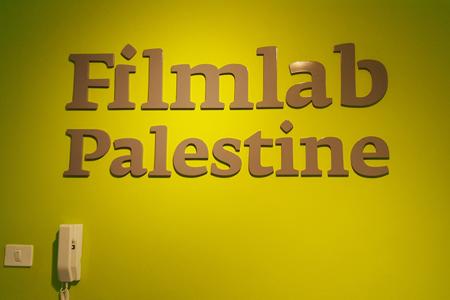Three years ago, the Danish Film Institute and Aarhus Film Workshop, from Denmark's second largest town, helped formulate a strategy for the establishment of Palestine's film workshop in Ramallah. Now, FilmLab: Palestine is a reality.
The workshop, which opened earlier this year, is a meeting place for professional filmmakers as well as a platform for talent development offering workshops, coaching and access to equipment and post-production facilities.
In the future it will also be hosting a variety of programmes giving children opportunities to watch and produce their own films. Contributing to a local cinema culture, the workshop is organising public film screenings and cinema-centric debates – as well as the annual festival Days of Cinema which is already up and running.
"The fact that a film workshop is Palestine now exists is unique. I am impressed by how much is already achieved!" says Charlotte Giese, special advisor at the Danish Film Institute, who has worked in a consultative role.
"One thing is to initiate a project, but that it's actually realised – and seems so viable with its firm establishment in the local professional film community – is extremely positive. Days of Cinema is one example of the new cinematic infrastructure which makes for a durable film culture."
Getting the new generation involved
Along with Aarhus Film Workshop, the Danish Film Institute has served as advisors and supporters in the first stage of the project, inspired by the Danish talent development and film literacy model.
While the film workshop in Aarhus has offered hands-on advice on how to run an efficient workshop as well as guidance in co-production and residency programmes, the Danish Film Institute has shared its expertise on outreach and media literacy, especially when it comes to the young population. The Danish House in Palestine, an independent organisation focusing on cross-cultural activities, is an important local partner, supporting the initiative and its vision for the future.
"What's unique about the workshop is that it not only focuses on film production in Palestine, but also on talent development and spreading cinema culture to children and youth. That coupling is essential," says Charlotte Giese.
"For children, the key is that they're given the opportunity to reflect through the films they see, or create and translate their challenging daily lives into words, sound and images and contemplate their reality and dreams through aesthetic tools. There's a great engagement in film and media and a willingness to tell personal stories in Palestine. With the film lab, the new generation will be involved from the outset – and given access to talk about and share their everyday lives with the outside world."
In October 2016, during the third edition of the Days of Cinema film festival, the Danish Film Institute organised workshops in East Jerusalem and the Old City of Jerusalem together with Lommefilm, a Danish company working with user-generated content, as well as a meeting with Palestinian and international key stakeholders.
